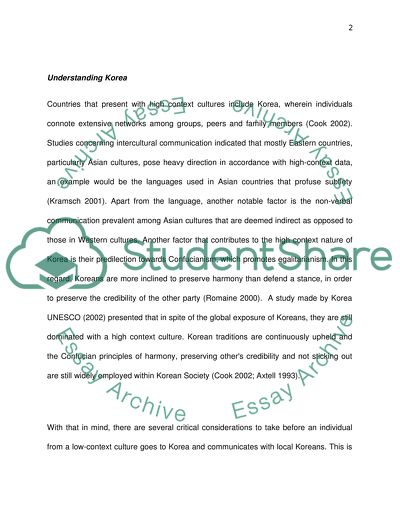Cite this document
(“Koreas High Context Culture Assignment Example | Topics and Well Written Essays - 1250 words”, n.d.)
Retrieved from https://studentshare.org/culture/1458390-koreas-high-context-culture
Retrieved from https://studentshare.org/culture/1458390-koreas-high-context-culture
(Koreas High Context Culture Assignment Example | Topics and Well Written Essays - 1250 Words)
https://studentshare.org/culture/1458390-koreas-high-context-culture.
https://studentshare.org/culture/1458390-koreas-high-context-culture.
“Koreas High Context Culture Assignment Example | Topics and Well Written Essays - 1250 Words”, n.d. https://studentshare.org/culture/1458390-koreas-high-context-culture.


